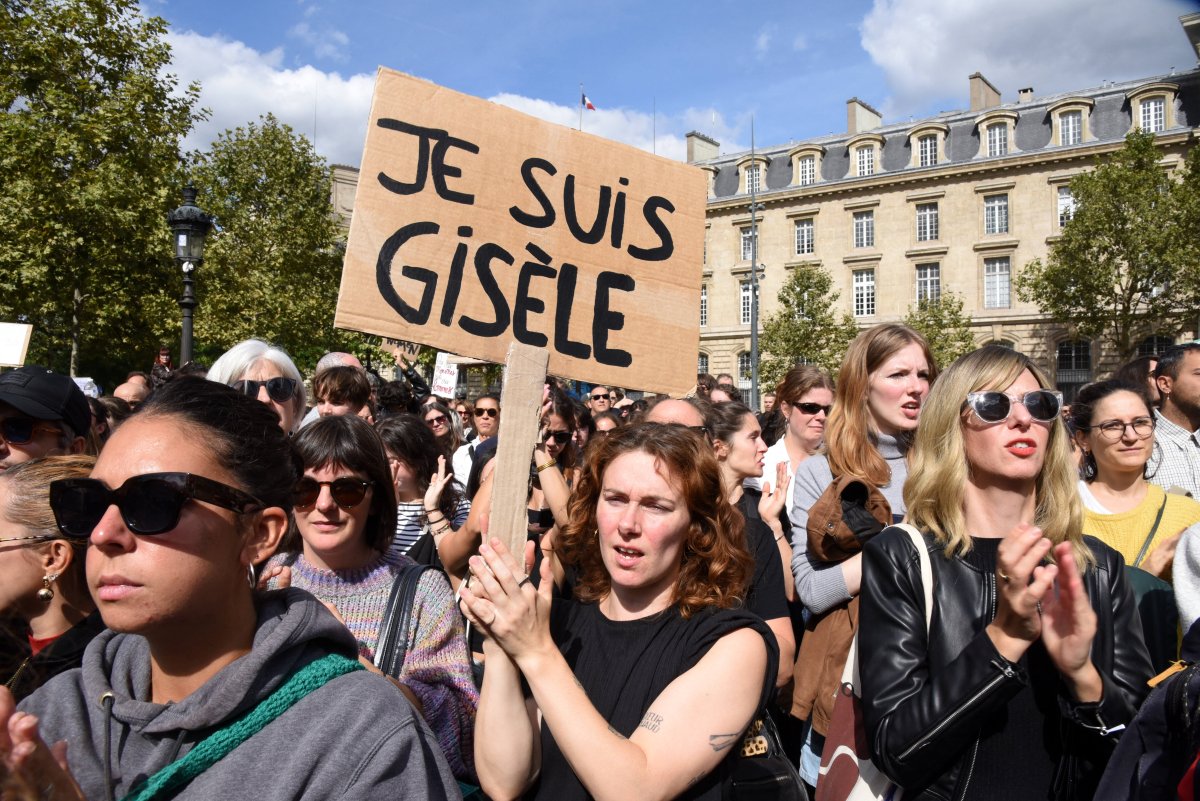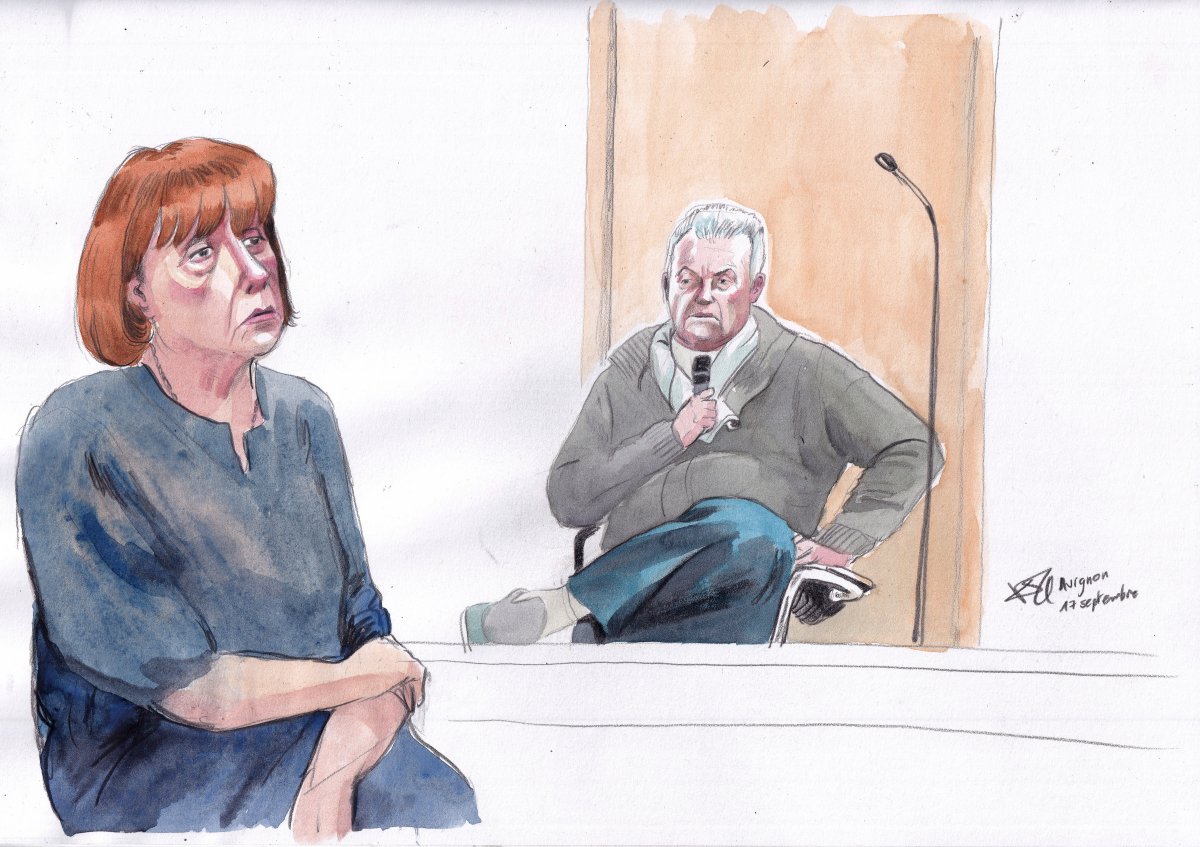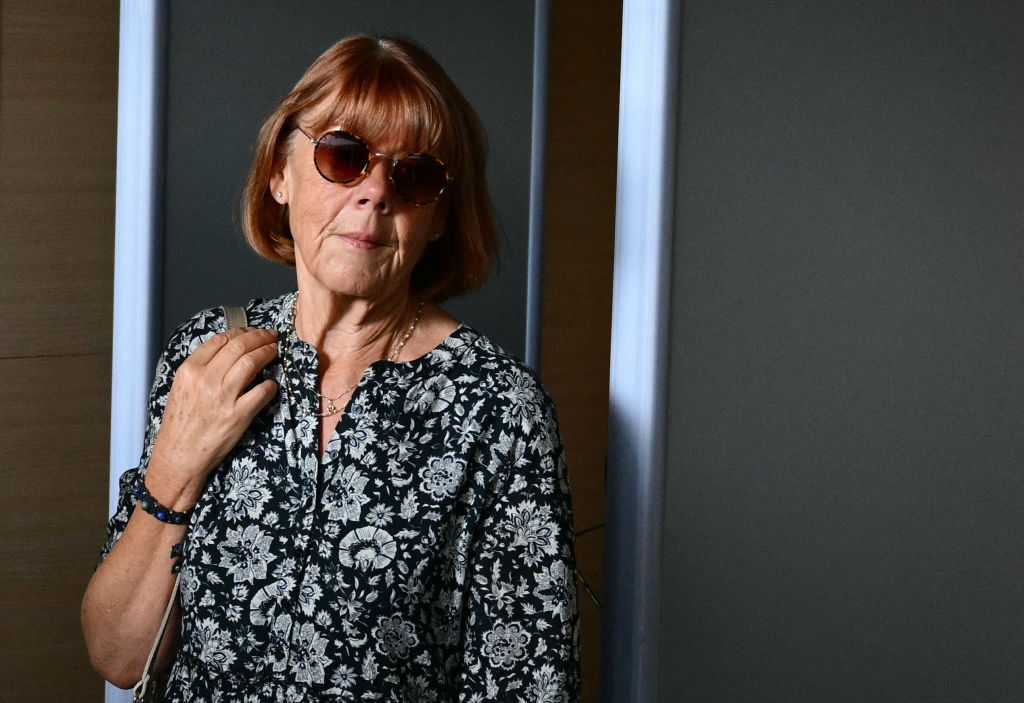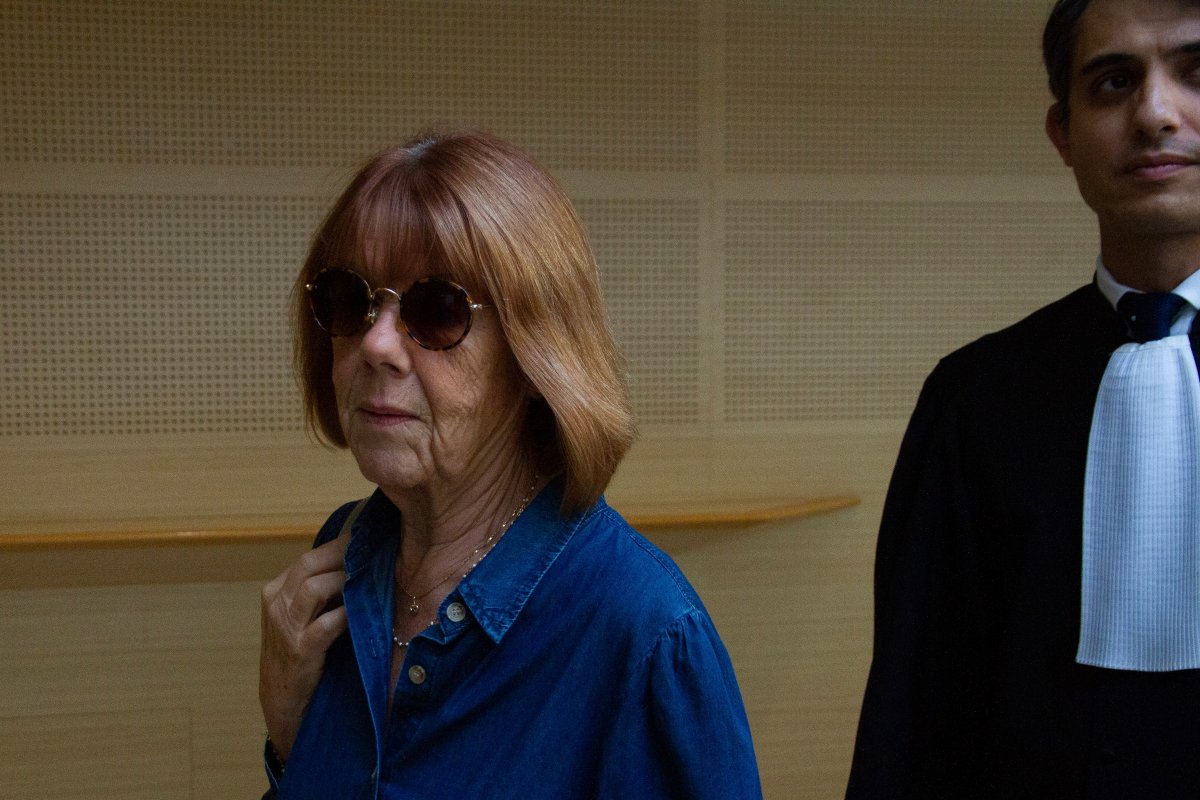Associate of Frenchman on trial for mass rape admits to copycat abuse
NOTE: The following article contains content that some might find disturbing. Please read at your own discretion.
A presumed accomplice of a man currently on trial in France for allegedly inviting dozens of men to rape his drugged and unconscious wife over the course of a decade told court Wednesday that he learned how to commit copycat crimes on his own wife under the tutelage of Dominique Pélicot.
Jean-Pierre Marechal, 63, told the French courtroom that Dominique Pélicot acted as a mentor to him after the pair met on a now-defunct website, where Dominique shared images of other men raping Gisèle Pélicot and asked Marechal if he would allow him to rape his wife, Cilia.
Marechal said, at first, he turned down the offer, but eventually relented and worked with Dominique to drug and rape Cilia.
“I regret my actions. I love my wife,” Marechal said in the courtroom in Avignon, in southern France.
“If I had not met Mr. Pélicot, I would have never committed this act. He was reassuring, like a cousin,” he continued, saying he was supplied tranquilizers by Dominique.
“I’m in jail and I deserve it,” he said. “What I did is appalling. I’m a criminal and a rapist.”
The trial of Dominique and 50 other men accused of raping Gisèle has shocked the world. The case has also triggered protests across France in support of Gisèle, who has become a symbol of the fight against sexual violence.
“These men are degenerates. They committed rape,” Gisele, 72, told the court after her now ex-husband and Marechal, gave testimony on Tuesday and Wednesday respectively.
“When they see a woman sleeping on her bed, no one thought to ask themselves a question? They don’t have brains?”, she said, adding: “Forgiveness does not exist”.
“Today I maintain that, along with the other men here, I am a rapist,″ Dominique testified on Tuesday. “They knew everything. They can’t say otherwise.”
Although he previously confessed to investigators, Dominique’s court testimony will be crucial for the panel of judges to decide on the fate of his co-defendants, many of whom deny having raped Gisèle, saying her then-husband had manipulated them or that they believed she was consenting.
Dominique was seen crying during Wednesday’s all-day court session, saying, “I am asking for forgiveness, even though I don’t know if it can be forgiven.”
He is also accused of having raped Marechal’s wife at her home after drugging her, with the collaboration of her husband. Prosecutors say Marechal watched as Dominique raped his wife.
Dominique acknowledged his guilt in raping Marechal’s wife and said he regretted his actions, adding that he cut contact with them after she woke up during one of the assaults while he was in her room.
Marechal is not accused of raping Gisèle.
On Wednesday, the court told attendees not to boo the suspects in the case, telling them they were innocent until proven guilty in response to a skirmish between supporters of the victim and some of the accused on the day before. Tensions still increased during Wednesday’s hearing.
Causing the day’s most heated exchanges, two of the defence lawyers representing men Dominique invited to his family home to commit abuse asked the court to display photos which they said raised doubts whether the victim was aware of what happened to her.
Gisèle fiercely rejected the claims. “They’re trying to trap me with these photos,” she said, reiterating she never agreed to any sexual activity. Her former husband said he took all the images while his wife was knocked out.
“I have felt humiliated while I’ve been in this courtroom. I have been called an alcoholic, a conspirator of Mr. Pélicot,” she said, adding her life had been “destroyed” for 10 years.
“In the state I was in, I absolutely could not respond. I was in a comatose state; the videos show that.”
Gisèle and her lawyers say the preponderance of evidence — thousands of videos and photos shot by her ex-husband of men having sex with her while she appears unconscious — should be enough to prove she is a victim, entirely unaware of what Dominique was subjecting her to from at least 2011 until 2020.
But on Wednesday, defence lawyers focused their questions on the notion of consent and whether she was aware of what was happening at any time during some of the 90 sexual encounters that prosecutors believe were rapes.
“Don’t you have tendencies that you are not comfortable with?” one lawyer asked her.
“I’m not even going to answer this question, which I find insulting,” she responded, her voice breaking. “I understand that victims of rape don’t press charges. We really spill everything out into the open to humiliate the victim.”
At one point, Dominique came out in support of his ex-wife, saying, “Stop suspecting her all the time … I did many things without her knowing.”
Gisèle, who was married to her husband for 50 years and shares three children with him, has become a hero to many rape victims and a symbol of the fight against sexual violence in France for agreeing to waive her anonymity in the case, letting the trial be public and appearing openly in front of the media.
— with files from Reuters and The Associated Press
Migrant women face ‘second trauma’ when reporting sexual abuse in France
A recent report from Amnesty International reveals that undocumented women in France face significant barriers when reporting sexual violence, often encountering hostility from the institutions meant to help them. French NGOs say law enforcement has increasingly threatened migrants with deportation, even going so far as putting them in detention centres when they try to press charges.
Amnesty International on Wednesday published a report highlighting the dire situation faced by migrant women who are victims of sexual violence in France.
The report, based on data from more than 20 civil organisations, sheds light on the “secondary victimisation” of these women, the institutional violence they suffer at the hands of police and judicial systems.
According to the National Observatory on Violence Against Women, a woman is raped every two minutes in France. Only 6% of rape or attempted rape victims filed reports in 2021, and a mere 0.6% of these cases led to convictions in 2020.
That means fewer than .04% of rapes lead to
convictions in France - 36 out of 10,000.
For migrant women, the situation is even more dire. In 2023, The Lancet published a survey revealing that the risk of being raped was 18 times higher for migrants compared to other women in France. According to the study, one out of every two migrant women did not seek help after being assaulted, and only one in 10 reached out to police or medical services.
Secondary victimisation
Migrant women who report sexual violence frequently encounter what has become known as “secondary victimisation”. This term, recognised by international law, refers to the additional harm victims endure due to hostile treatment by law enforcement or judicial authorities.
“It’s a second trauma, distinct from the original offence, triggered by the way authorities respond to the victim's case,” explained Anna Glazewski, a jurist specialised in human rights and a lecturer at the University of Strasbourg.
“The term ‘secondary’ doesn't imply it's less significant, but rather that it adds to the victimisation caused by the initial assault.”
Instead of receiving the support they need, many victims are confronted with additional challenges such as language barriers, often with no interpreter available.
Worse still, many migrant women are unfairly suspected of “fabricating” their abuse claims to gain residency papers.
Margot Coudert, a jurist at an asylum centre in Lyon, witnessed women being turned away when trying to report sexual violence.
“There’s a residence permit available to women who file complaints against a network of pimps,” Coudert explained. “But when they went to the police, they were told they were only doing it to get a permit.”
She recounted an instance where she attempted to book an appointment with police for a Nigerian woman, only to be met with blunt dismissal.
“There’s no point,” an officer told her. “Nigerian women only do this to get residency papers.”
‘Beware of all those who are greedy’
Migrant women, particularly those of uncertain legal status, are among both the most vulnerable and the most hesitant to report sexual violence.
The Amnesty report alleges that undocumented women are "terrified" of approaching French police. In some cases, women who reported sexual violence were issued deportation orders or even placed in detention centres before being expelled from the country.
“Since 2023, we’ve heard of 17 women being arrested after asking police for help,” said Violaine Husson, responsible for gender and protection issues at Cimade, a French NGO supporting asylum seekers.
“The police run identity checks; they put them in custody before placing them in a detention centre.”
Because of these practices, undocumented women “are increasingly scared to press charges”, according to the NGO.
Such actions violate both national and international laws, which guarantee the right of every individual, regardless of their legal status, to report sexual violence. But migrant women frequently encounter discriminatory attitudes rooted in racial and ethnic stereotypes.
“Beware of all those who are greedy, who came to France for economic reasons and who now come to tell us that Monsieur is violent,” Amnesty quoted one police officer as saying.
Calls for urgent reform
Amnesty International is calling on French authorities to enforce existing laws and implement reforms that align with international standards, ensuring migrant women have equal access to justice.
Among the key recommendations is the need for specialised training for law enforcement to address racial and gender-based biases.
“A lot of this stems from a lack of proper training and awareness,” said Glazewski, suggesting that NGOs could collaborate with law enforcement to help bridge this gap.
French NGOs are hopeful for change but remain focused on prevention efforts in the meantime. “There are measures in place, but they are not widely known or fully enforced,” said Husson, highlighting the option of reporting abuse in hospitals or women’s shelters.
"Better, more effective measures will not only support migrant women but also protect all women in France. Safe and secure reception facilities are essential for everyone."
===================================================================================







No comments:
Post a Comment